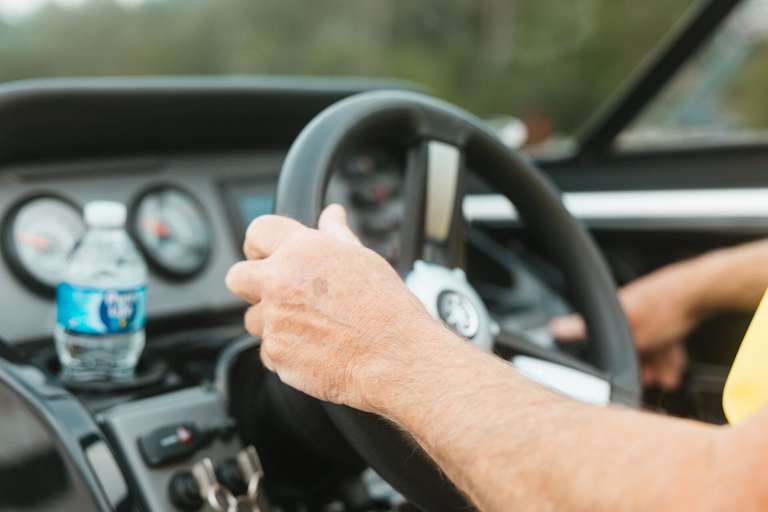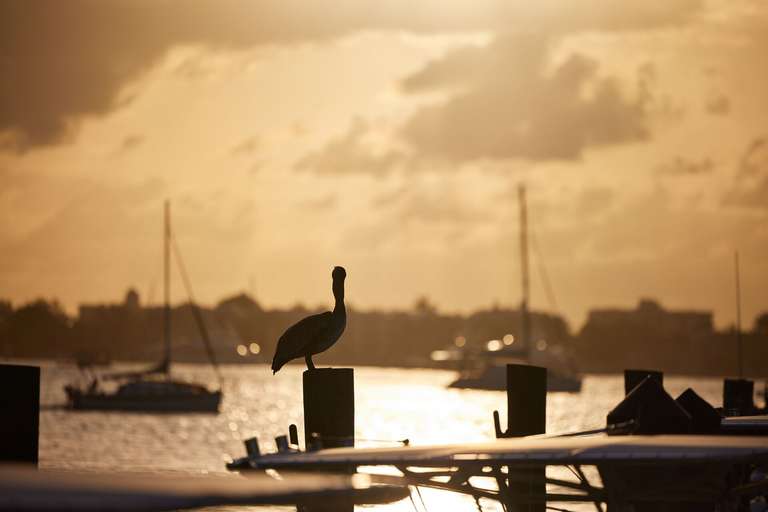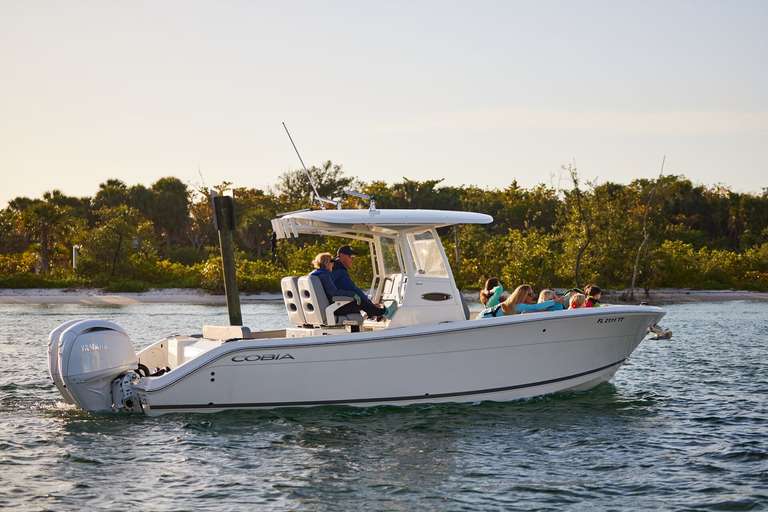17 Boating Safety Tips for Beginners
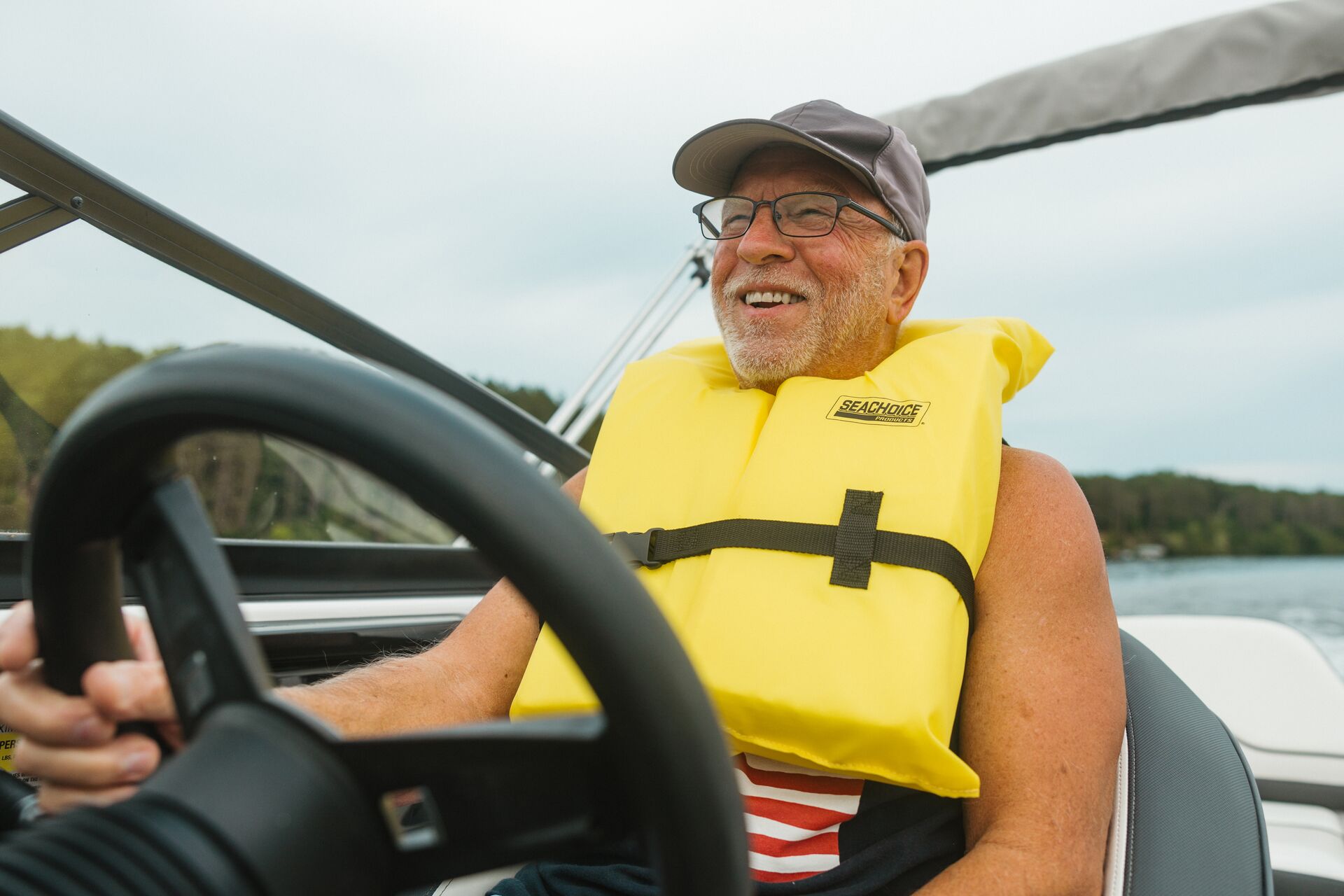
If you're new to boating, one of the most important things you can do is focus on safety. When you understand how to stay safe on a boat, you'll have the confidence to start spending more time on the water, trying new things, and maybe even buying a larger vessel.
Where should you start? Here are 17 of the most important boating safety tips for beginners so you can get started on your boating adventure correctly.
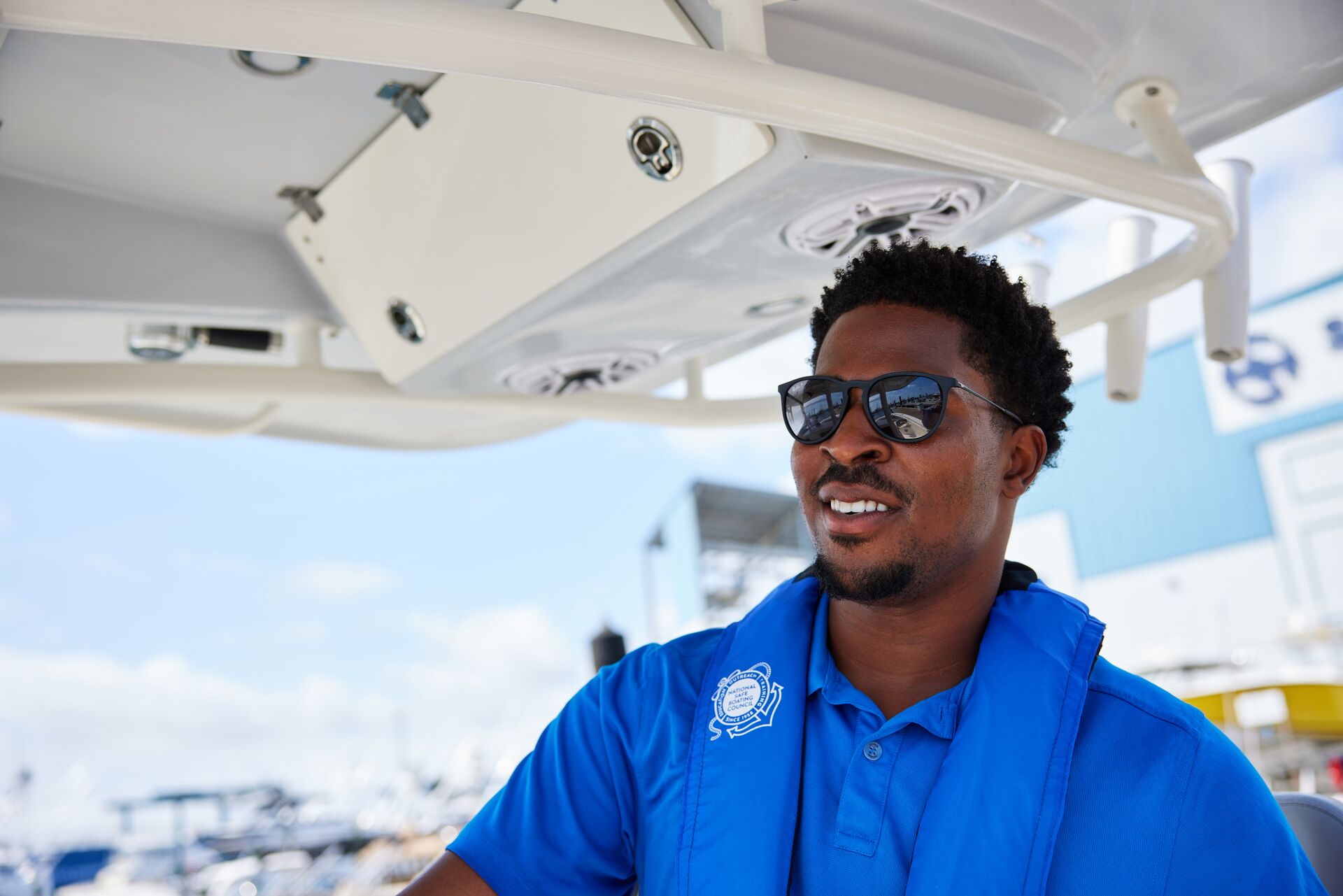
17 Boating Safety Tips for Beginners
There are many things to keep in mind when operating watercraft. Here are seventeen tips that cover some of the most important things to do every time you launch!
1. Always Wear a Life Jacket
You should always wear a life jacket while boating, even if you're a strong swimmer.
Choose a U.S. Coast Guard-approved personal flotation device (PFD), and ideally, select one that can turn you face up if you're unconscious in the water. Also, ensure you have life jackets that correctly fit every passenger on board.
2. Learn Basic Boating Rules and Navigation
Understanding right-of-way rules, navigation markers, and boating signals is essential so you don't risk yourself and other boaters. Getting the basics down will also make it easier to build on your knowledge base in the future.
3. Check the Weather Conditions Before You Go
Take time to check the weather before you head out on the water. You want to avoid boating in strong winds, storms, or fog to reduce risks and keep yourself and other boaters safe.
4. Inspect Your Boat Before Departure
A pre-trip inspection is an essential part of using your boat safely.
Look over the engine, check the fuel level, ensure the lights work, and (again) verify that you have proper life jackets for everyone. Also, ensure you have an anchor, fire extinguisher, first aid kit, and emergency signaling devices.
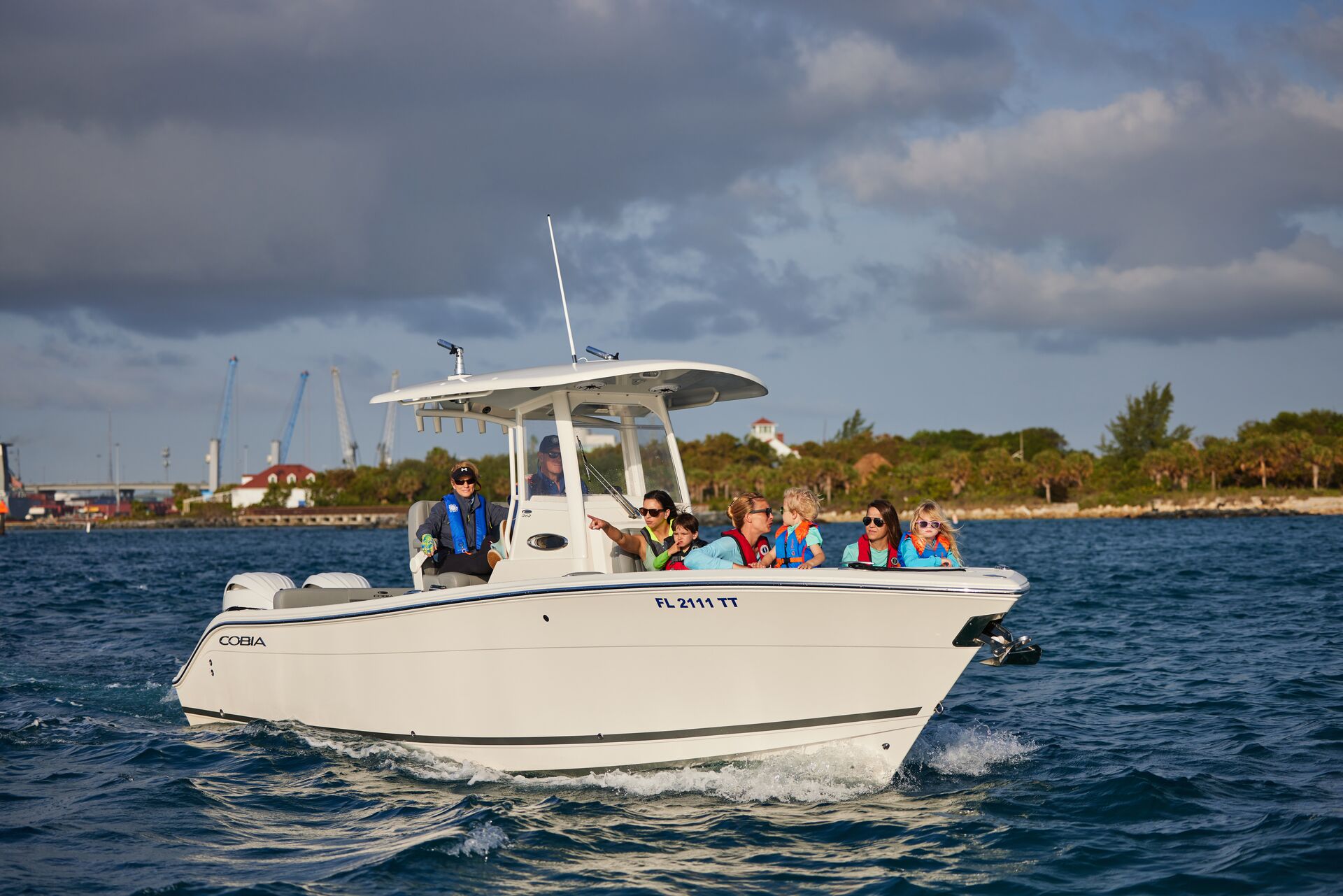
5. Follow Capacity Limits
Putting too many people or too much gear onto your boat can reduce maneuverability and make it sit too low in the water. Overloaded boats have an increased risk of capsizing, which could lead to serious injury or even loss of life.
6. Maintain a Safe Speed and Be Vigilant
You never know when you might encounter another boat, a personal watercraft (PWC), or a natural obstacle. To protect yourself, your passengers, and your boat, make sure your speed is appropriate for the water conditions and surroundings and stay alert.
7. Avoid Alcohol While Boating
Drinking alcohol impairs judgment and reaction time, which increases accident risks. You or another designated captain must stay sober when boating to help keep everyone safe and avoid legal issues if you get caught boating while intoxicated.
8. Understand Local Regulations
Familiarize yourself with local boating laws and registration requirements. Also, learn which areas are restricted and recognize no-wake zones and fishing regulations.
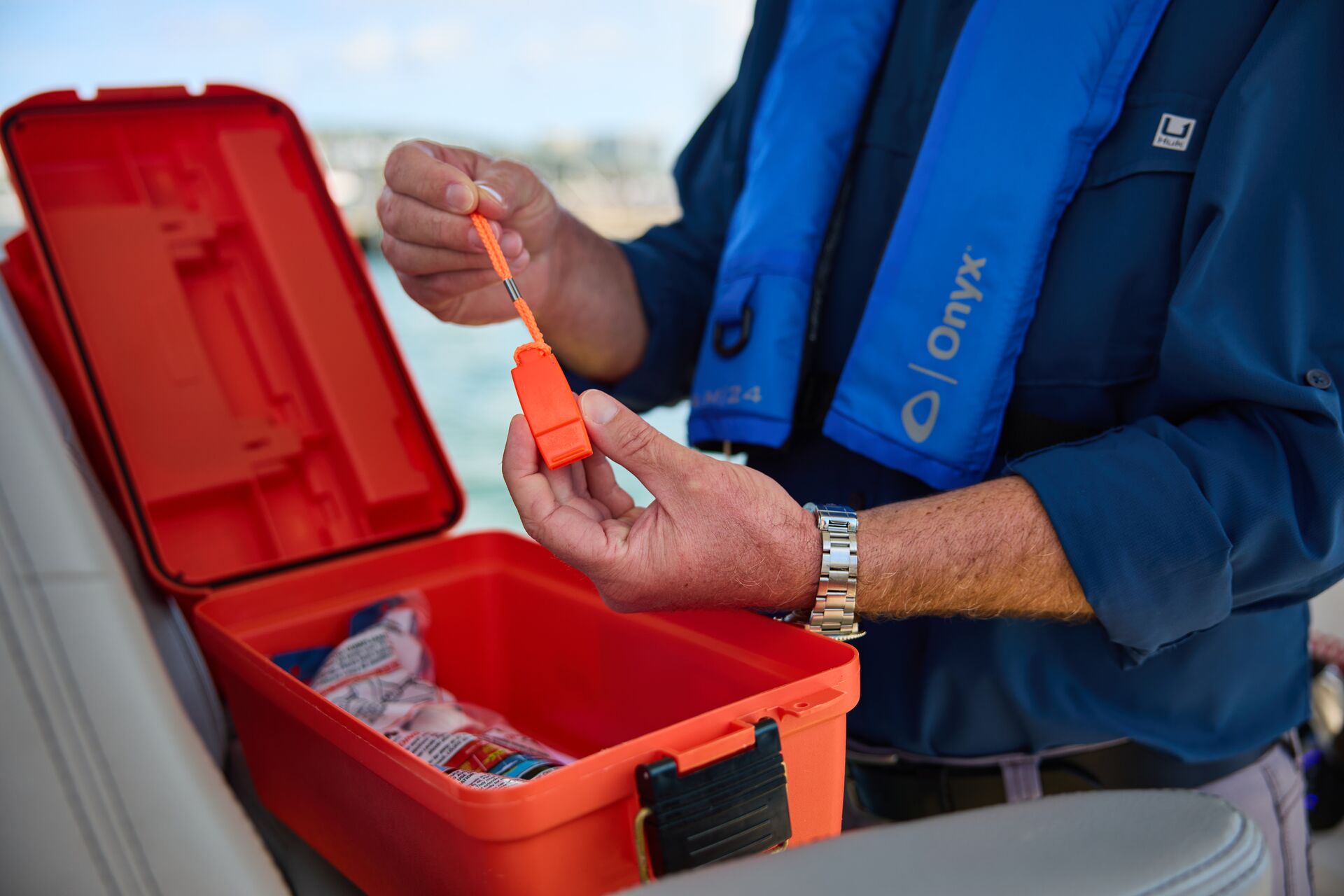
9. Carry Essential Safety Equipment On Board
Bring sunscreen, drinking water, and snacks when you take your boat out for the day. Also, include a whistle, waterproof flashlight, navigation charts, and a VHF radio.
10. Let Someone Know Your Plan
Share your destination and expected return time (called a Float Plan) with someone staying onshore. The information on this plan can help rescuers locate you faster if you have an emergency.
11. Practice Safe Docking Techniques
Stay in control as you approach docks and moorings, and take your time. You can use lines and fenders to prevent damage to your boat as you dock.
12. Stay Updated on the Latest Safety Advancements
If you plan to boat frequently, consider investing in technology like GPS devices, personal locator beacons (PLBs), or automatic engine shut-off devices for increased protection.
You may also want to join local boating communities or forums, which can help you learn best practices and stay informed.
13. Know What to Do in an Emergency
Even if you do everything right, you can still experience a boating emergency. However, it's not enough just to have safety equipment onboard.
You must also know how to use it correctly, call for help, and maneuver your boat if someone falls overboard.
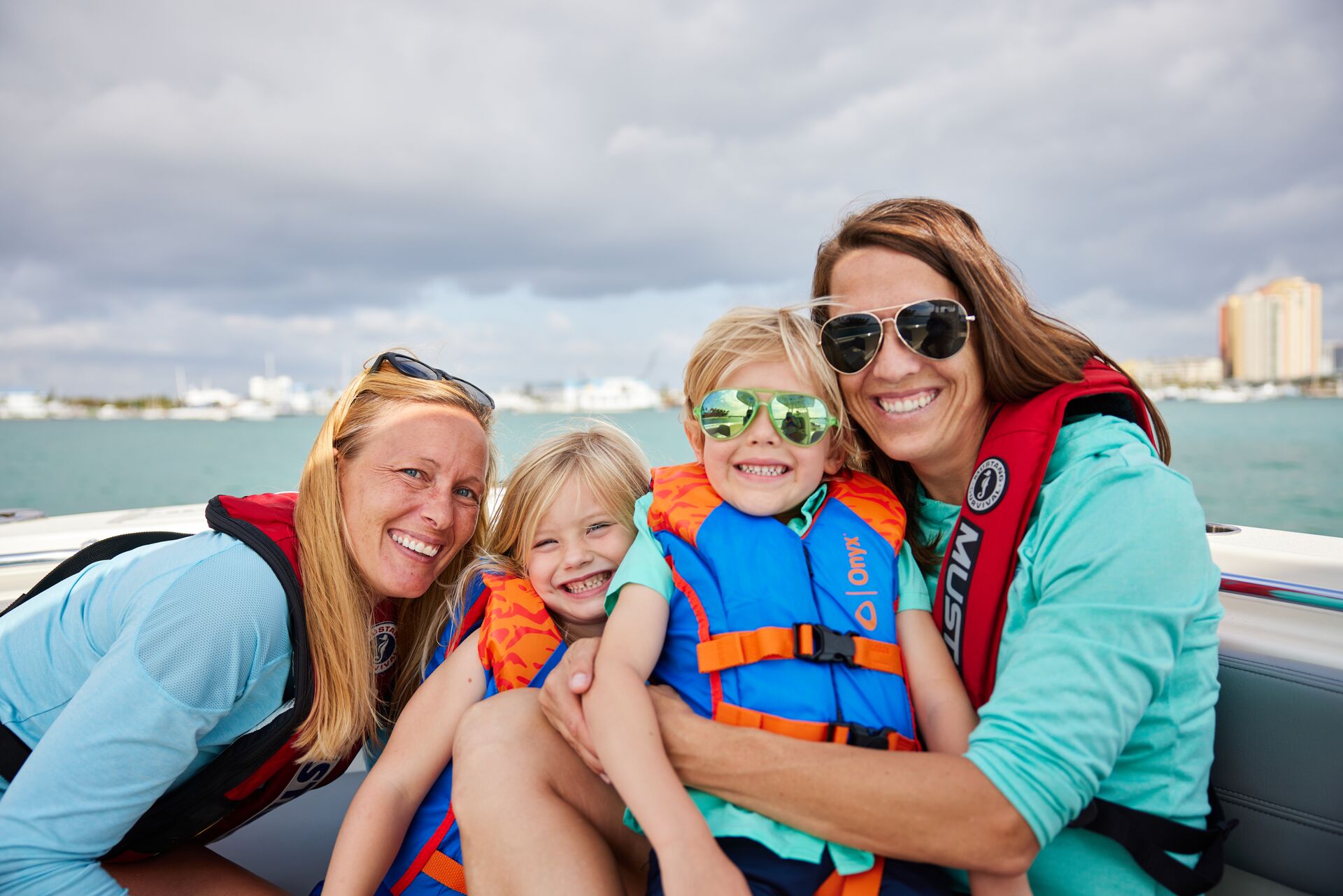
14. Teach Water Survival Skills to Kids
Boating safety tips for kids are as important as tips that apply to adults!
Children should also wear a life jacket and know how to stay afloat in the water. Teach them to float or tread water and get back onto the boat or a dock.
Note: Children too young to do these things may be unsafe on a vessel. So, use your best judgment to determine if your child is old enough to stay safe when boating.
15. Watch the Kids At All Times
Even if your kids know how to stay afloat, never take your eyes off them while on or in the water.
Keep children from the boat's edge, and don't let them lean overboard. Also, keep them away from the helm and controls until they're old enough to understand how they work.
Unattended children can get hurt and also cause damage to the boat or put other people at risk.
16. Wear Sun Protection
The sun's rays can be intense when boating, and the water often feels like it magnifies them. The combination of the sun and the water makes sunburn common, so everyone on the boat should apply sunscreen and reapply it as needed.
17. Stay Hydrated
Staying hydrated is a vital part of enjoying time on your boat. Bring and drink plenty of water when you're boating so you don't get dehydrated or feel unwell.
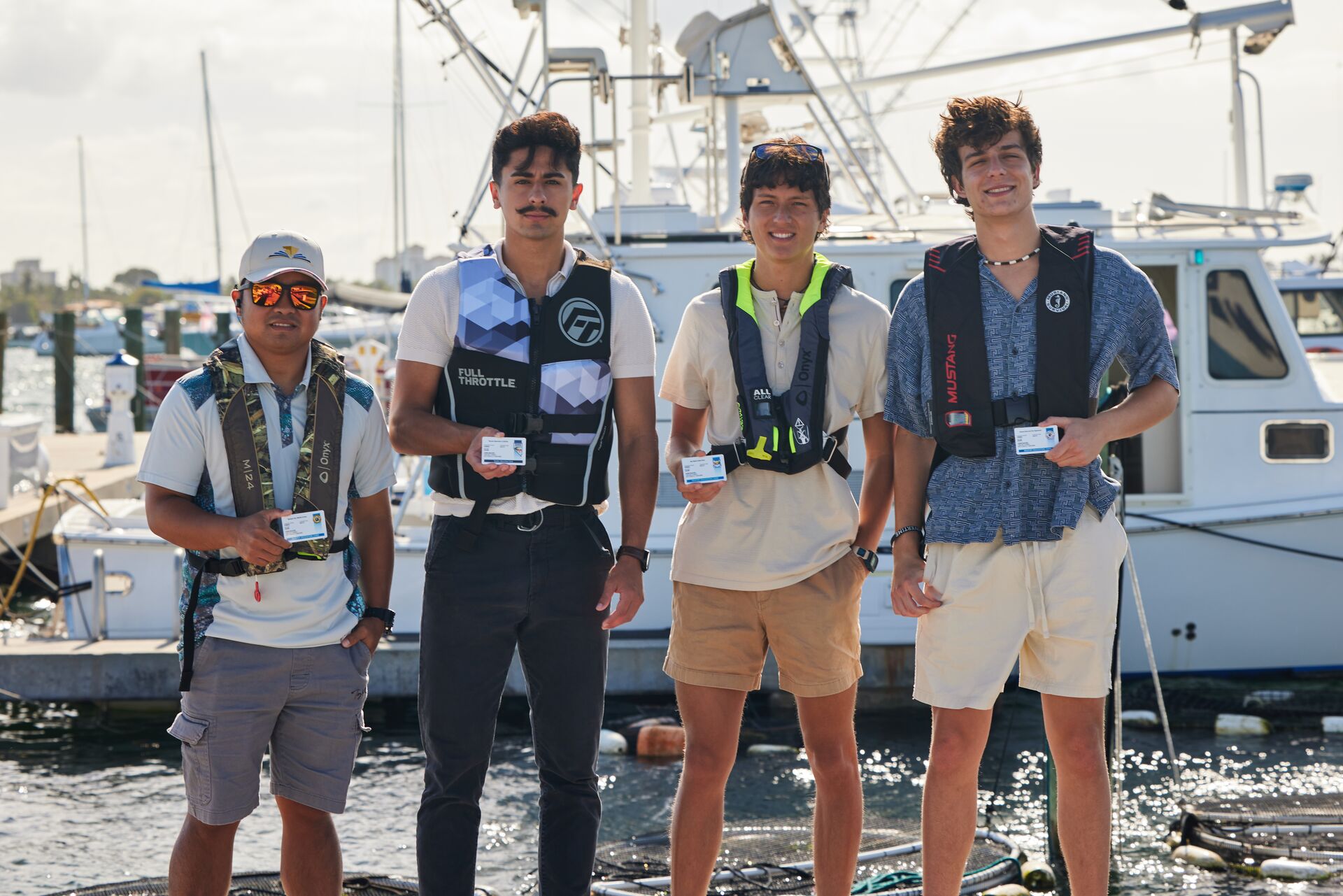
Bonus Tip: Take a Boater Education Course
While these seventeen tips are crucial to boating safely, there's much more to learn to protect yourself and others while on the water.
One of the best ways to learn everything you need to know is to take a boater education course. An online course like what we offer here at ilearntoboat will help you learn important boating safety tips for beginners to help prevent panic if something goes wrong. It's a great way to have peace of mind on the water and enjoy safe boating adventures season after season!
ilearntoboat courses are fun and presented in a gamified format that makes it easy to learn and retain the information you need to pass the exam and stay safe when boating. Plus, after completing the course, you'll have met your state's requirements for boating safety and qualify for your boater education card!
Before you hit the water this season, choose the course for your state and start learning.

